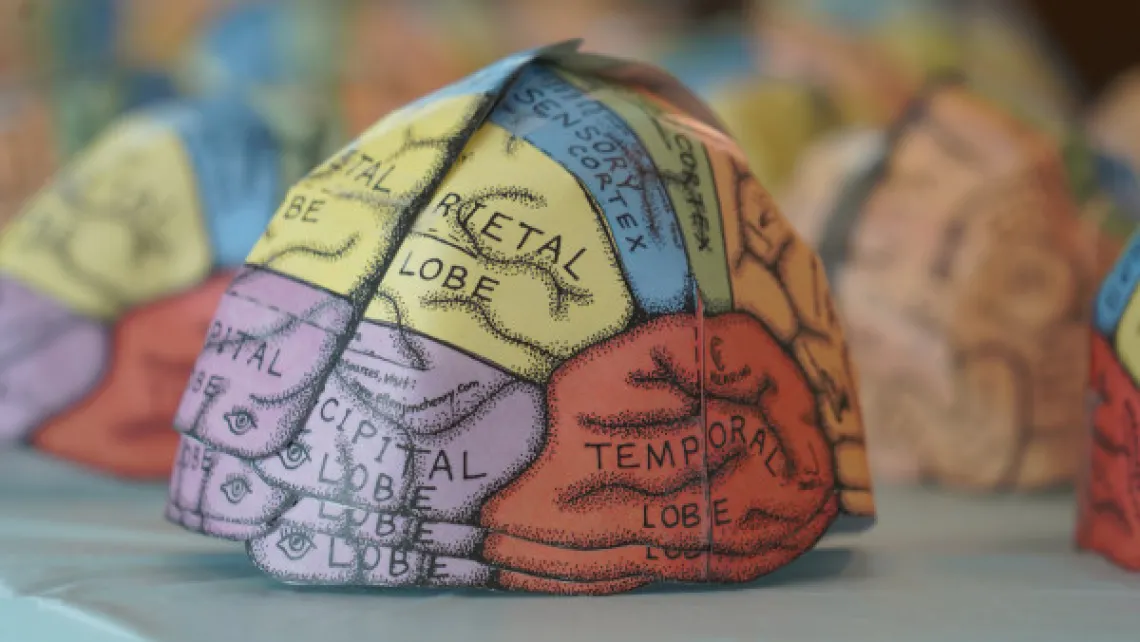Brain Health Week

What is Brain Health?
Brain Health is all about maximizing your capacity to thrive in life, according to The BrainHealth Project (centerforbrainhealth.org). In other words, Brain Health is crucial for living a healthy life at our highest capacity. Studies have shown that individuals who care for their brain maintain better and longer-lasting brain function well into old age. It's particularly important to start paying attention to your Brain Health when you are young.
Do you know how to maintain your Brain Health?
There are many publicly available resources for Brain Health. My favorite is on the AARP website: The Six Pillars of Brain Health (aarp.org).
Based on current brain research reviewed in the AARP Brain Health and Staying Sharp program, they explain six important things we should focus on to keep our brains healthy:
- Engage Your Brain: Stay curious, be interested in things, and challenge your thinking.
- Stay Socially Engaged: Maintain and expand relationships with friends, families, community members, and participate in cultural activities.
- Manage Stress: Find ways to manage things that upset or frustrate you, like talking to friends, exercising, practicing breathing techniques, Tai-Chi, meditation, prayer, and spending time outdoors (walking/hiking/yard work).
- Exercise: Schedule regular exercise to maintain a strong and active cardiovascular system (dancing, swimming, running, biking) and musculoskeletal system (muscle and balance exercises).
- Get Restorative Sleep: Maintain a consistent sleep-wake schedule to restore your brain, which is vital for your physical and emotional health.
- Eat Right: Maintain a balanced diet with less meat and sweets and more fish, nuts, beans, grains (whole wheat, brown rice), leafy green vegetables, and healthy fats (vegetable/nut-based oils).
Why is it important to keep your Brain Health?
People with intellectual and/or developmental disabilities (I/DD) develop Alzheimer’s disease or other related dementia just as frequently as other aging adults. However, some may face an increased risk (e.g., 60% of people with Down syndrome by age 60). Aging related functional and memory changes can be hard to identify for people with I/DD, because:
- Initial signs may look differently (e.g., changes in behaviors) from a person with a typical memory loss,
- Due to different functional and cognitive baselines, changes caused by dementia may be misunderstood by health care professionals,
- Individuals may not be able to understand and communicate changes, and
- Individuals, as they age, may also develop other treatable conditions that mimic dementia.
More about Alzheimer’s Disease and Related Dementia for People with I/DD
Learn about dementia, how it may affect individuals with IDD, and care planning:
- Check out the National Task Group on Intellectual Disabilities and Dementia Practice: https://the-ntg.org/publications
- Alzheimer’s Disease and Down Syndrome Guidebook: https://www.ndss.org/wp-content/uploads/2018/12/NDSS_Guidebook_FINAL.pdf
- Document a functional baseline while individual has full function: NTG Screening Tool: https://www.the-ntg.org/ntg-edsd.
- Caregiver resources: ONEcaregiver Resource Center – ONEgeneration
